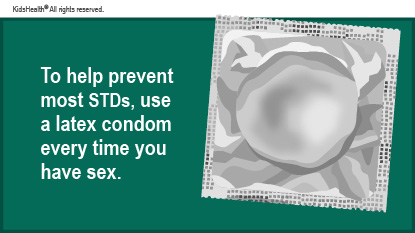Pelvic inflammatory disease (PID) is an infection in the ovaries, fallopian tubes, and/or uterus. PID is caused by a sexually transmitted disease (STD). STDs are infections that spread through sex (vaginal, oral, or anal). Treatment with antibiotics can help prevent long-lasting problems and stop the infection from spreading to other people.


Treatment:
Follow up:



What happens if PID is not treated? If PID isn't treated, a girl can have problems like:
Sometimes, if PID has gone on too long, a girl may still get these problems even after treatment.
Can I get PID again? Yes. Girls can get PID again if partners with STDs don't get treatment, or if a girl has sex with someone else who has an STD.
How can I avoid getting another STD? The best way to avoid STDs is not to have sex (vaginal, oral, or anal). If you do have sex, you should: